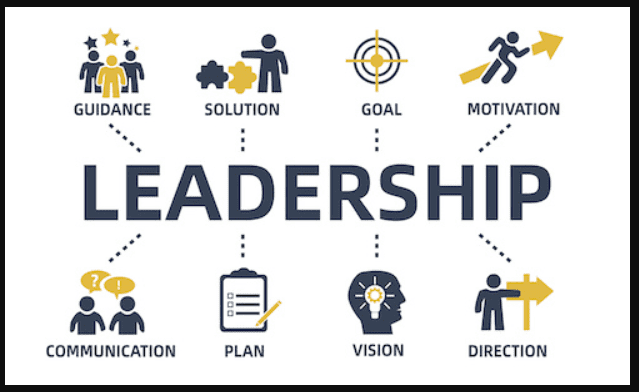Now a day‟s every country in this world is treated as village, you can imagine whatever you can.That‟s the way people are communicate easily to each other make things differences. Globalization has only one overarching feature – integration. It is all about collectiveness and everincreasing interconnectedness. It in effect influences everything, whether it is a company or acountry. But here is a fact, is globalization all the way keeps help to connect to each other or build a strong communication in “borderless world”? If it is a question, then how it impacts in our society as well as in our culture?The Cable television has made different attraction in around the world as well as in Bangladeshihousehold. Foreign movies have come and have reflected their culture in it. This has made ahuge impact on the minds of the Bangladeshi people. Not to mention the easy availability ofInternet whose reach even extends till rural areas? The internet has opened up opportunities for people to learn more about foreign cultures and places. It has made Bangladeshi more acceptableand open-minded towards change. Globalization has broken all borders. As a result, the newgeneration of Bangladeshi is more knowledgeable, more aware and more interested in the worldaround them.In our society, women who were once the exploited and ignored part of the population, nowassert their rights of being a woman. Women now have more access to education and know moreabout their rights and their identity as a woman. Nowadays, you find women in the society whowork alongside men. Men-dominated fields see the coming up of the woman. Men and womenare slowly being treated equally. However, this does not mean that all Bangladeshi women arefully free. In many places, exploitation still continues. Positive impact of westernization Due to globalization, westernization is spreading out all over the world. Westernization has been placed in different countries because of globalization and needless to say, it has had an impact onthe Bangladesh way of life. It has out-rooted the traditional Bengali culture and the rate at whichwesternization is happening to Bangladesh is surprising. Regional languages are on the processof redefined. In many ways instating of regional language people have been used to Englishespecially in urban areas youngsters. It had started get fixing with western clothing, westernlanguages, western mannerisms and everything else westernized. Beside, the festival of Pohela Baishak people is now celebrating like other western culturalfestivals especially in young group such as- Valentine's Day, Friendship Day, Mother's day, Father's day. And other international celebrations. Now a day people are concern about how we think about globally, what the other country aredoing in their cultural issue, just we observe and absorbing them. There is lot of issues that weautomatically know about it; even he/she has a little knowledge about westernization. But, people are moving with it in all the way. Negative impact of westernization At the side of the positive, Bangladeshi people are involving day by day with negative activitieswhich our own culture because of following western culture. However no matter have occurred by this way, what people are doing in our society.With Globalization and westernization of our culture, Bangladesh now has access to things likeadult movies, pornographic material, sex toys and other sexual content from all around the world especially in young group of people. Bangladeshi‟s population has been corrupted thanks by easy access which has been brought about by westernization. In fact, this has gone to such limits thatnow pornographic material is even made in Bangladesh also. These perverted habits have raiseda population who sometimes are so full of hunger for that they choice to rape. It is a fact thatrape cases have risen since the spread of globalization.So that, western dress is another factor that creates an imbalance in our society especially forwoman group (whenever girls wear a shirt, t-shirt, and pant in our society, due to feel orsensation of comfortable) which does not permit within our culture as majority of Muslimnationality. For wearing that kind of dresses men are mostly thinking in negative sense.
More Information:
he pervasive influence of Western culture, particularly through media and popular culture, has undoubtedly impacted the moral values of Bangladesh's younger generation. While this exposure to global trends and perspectives can be beneficial in fostering openness and understanding, it has also raised concerns about the erosion of traditional values and ethical norms. One of the most significant impacts of Western culture on Bangladeshi youth is the shift towards individualism and self-gratification. Western media often glorifies consumerism, materialism, and personal fulfillment, promoting a culture of self-promotion and instant gratification. This emphasis on individual desires can clash with traditional Bangladeshi values that emphasize family, community, and collective responsibility. The rise of social media has further exacerbated this trend, providing platforms for self-expression and validation through likes, comments, and follower counts. Young people may become preoccupied with curating an online persona that aligns with Western ideals of beauty, success, and popularity. This pursuit of external validation can lead to a distorted sense of self-worth and a disregard for deeper values such as compassion, empathy, and integrity. Another area of concern is the increasing acceptance of Western attitudes towards sexuality and relationships. Western media often portrays casual hookups, premarital sex, and open relationships as normal and desirable. This can lead to a disconnect between the values instilled in Bangladeshi families and the messages conveyed by Western media. Young people may question traditional norms of modesty, fidelity, and respect for elders, potentially leading to risky behaviors and unhealthy relationships. Moreover, the influence of Western culture can contribute to a decline in respect for authority and tradition. In Bangladesh, there is a strong hierarchical social structure with respect for elders and established norms. However, Western media often portrays rebellious and non-conformist behavior as admirable. This exposure can lead to challenges in upholding traditional values of respect, obedience, and deference to authority figures. Despite these concerns, it is important to understand that Western culture also offers positive influences. Exposure to global trends and perspectives can broaden young people's horizons, promote tolerance, and foster a more inclusive society. It can encourage critical thinking, open-mindedness, and the exploration of diverse ideas and perspectives. Therefore, the key lies in striking a balance between embracing the benefits of global exposure while maintaining the core values that define Bangladeshi culture. Parents, educators, and community leaders play a crucial role in guiding young people towards a well-rounded understanding of both traditional and contemporary values. By fostering a culture of open communication, critical thinking, and ethical decision-making, we can empower our youth to navigate the complexities of a globalized world while preserving the essence of their cultural heritage.
Powered by Froala Editor










